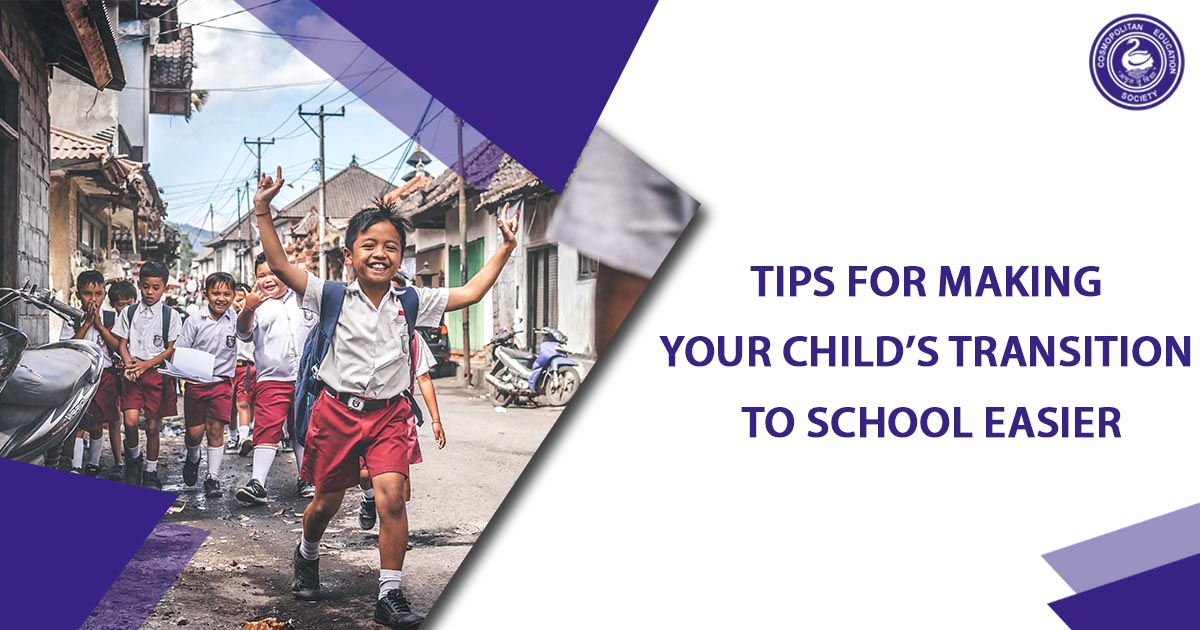
Tips for Making Your Child’s Transition to School Easier
Schooling can be exciting and anxious for both parents and children. For kids, it’s an opportunity to make new friends, learn new things, and grow into their own unique personalities. On the other hand, for a parent, it can be hard to let go and trust that their children are in capable hands. But with a little preparation in advance can ensure both you and your child to feel confident and excited for the upcoming schooling journey.
This post aims to help you to understand how you can make the child starting school journey smooth and hassle-free. Keep reading to get all the parenting tips you need for a smooth transition into kindergarten or elementary school!
Parenting tips to make the transition for your little champ to school smooth
1. Prepare in advance:
One of the best parenting tips to ease your child into the idea of school is to start talking about it early. Talk about what they can expect, who their teacher will be, and what their classroom will look like. If you have any teachers’ friends or family members, ask them to chat with your child about school and how a new world is waiting to absorb them. Additionally, You can also try trial runs, like wake up as if it’s day 1 of school, get your child ready, and pack his/her little bag, get them to the school gate you indent to admit them.
2. Meet the Teacher:
One of the essential parenting tips you can take to help your child adjust to school is to meet their teacher. Take the time to go to the school and introduce yourself. Ask about what your child will be doing in class, and find out how you can best support them at home.
3. Tour the School with your little one:
Familiarity breeds comfort, so it’s one of the most effective parenting tips to ensure your child enters school happily. We highly recommend you take a school tour with your child before the first day. This will help them feel more comfortable in their new surroundings. If possible, try to visit during school hours so they can see what the halls and classrooms look like when they’re full of students. You can also find photos of the classroom online.
4. Talk About What to Expect:
Talk to your child about what they can expect on their first day of school. Go over the schedule for the day and talk about where they will be going and what tasks are scheduled for the day. It’s also a good idea to review the school’s rules and regulations like: being on time, eating from own tiffin, etc.
5. Encourage your child to embrace self-acceptance:
One of the most challenging yet critical parenting tips is to encourage your child to be themselves. It’s natural to want to fit in, but your child needs to know that they don’t have to change who they are to make friends. Tell your kid that being themself is what makes them special and unique. Friends will come to them if they are genuine and good.
6. Teach Them to be Independent:
Independent doesn’t only mean teaching them how to do things by themselves but also solving challenges on their own. Tasks such as dressing themselves and brushing their teeth can become a habit with practice but how to solve and think for themselves becomes a difficult task to inculcate. Its recommended to start allowing them to think for themselves from children, making it a habit for their bright future.
7. Teach Them to be Respectful:
One of the essential parenting tips is that you can teach your child to be respectful. This means treating others with kindness and consideration and not judging or discriminating against them. It also means taking responsibility for their actions and words. Teaching your child to be respectful will help them develop positive relationships with others, both now and in the future.
Importance of parenting tips for making the transition smooth for kids
1. Less stress for the child
2. Fewer behavioural problems
3. Better adjustment to the new situation
4. Improved academic performance
5. Increased sense of control
6. Increased sense of self-worth.
In a nutshell:
So, what should you do as a parent when your little one starts school? Be sure to attend all orientations and meetings scheduled by the school. This will give you enough data while you start talking to your child about school. Get to know the teacher, read any newsletters or emails that come home with your child, volunteer in the classroom (or at least offer), and keep communication open. Finally, you have to encourage positivity in your children so that each challenge is faced with courage and confidence.
